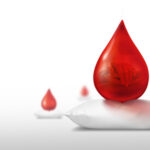Fall 2025 Vol. 15 Issue 03
-
Policy, Patients & Progress
Rallying in a Year of UncertaintyAt a defining moment, a broad coalition came to Capitol Hill to protect science, defend progress and stand up for patients. Congress must hear from you next.
by Carly McCallie
-
From the Editor-in-Chief
Reducing Ovarian Cancer RiskResearchers examine whether removing the fallopian tubes could help prevent ovarian cancer.
by William G. Nelson, MD, PhD
-
Your Cancer Guide
Find Calm in the ChaosWhen a cancer diagnosis challenges our sense of control, we can still find ways to regain our footing.
by Hester Hill Schnipper
-
Caregiving With Confidence
Scans Are Clear, So Why Am I Still Upset?Despite the joy that comes from learning that a loved one’s cancer is gone, caregivers may struggle with lingering fears and anxiety.
by K.J. Bannan
-
The HER2 SHIFT
Antibody-drug conjugate provides an additional treatment option for people with HER2-low breast cancer.
by Kendall K. Morgan
-
Better Support for Blood Cancers
Despite receiving uniquely intensive therapies, people with blood cancers are less likely to receive palliative care than those with solid tumors.
by Cameron Walker
-
Improving Communication for Deaf Cancer Patients
After a cancer diagnosis, people who are deaf or hard of hearing can struggle if accommodations don’t meet their communication needs.
by Eric Fitzsimmons
-
Survivor Profile
Finding Her VoiceAurora Lucas uses social media to highlight the unique needs of young adult cancer survivors.
by Thomas Celona
-
Q&A
Creating Tiny Doses of JoyJoelle Kaufman writes about how life’s simple pleasures lifted her spirits during treatment.
by Erin O'Donnell
-
Get Involved
Making Moments CountThe Zoefia Alexandria Foundation supplies toys and activities to pediatric cancer patients to allow for joy during treatment.
by Thomas Celona
-
Facts and Stats
A Shifting Cancer BurdenWomen, especially those younger than 50, are being diagnosed with cancer at an increasing rate.
by Thomas Celona
Adding chemotherapy to targeted therapy improves outcomes for people with advanced EGFR-positive non-small cell lung cancer.
by Sandra Gordon
Lessons From 20 Years Living With CancerMultiple myeloma survivor Jonathan Gluck reflects on uncertainty, and the scientific progress that has kept him living with cancer for more than two decades.
by Eric Fitzsimmons
The Enduring Importance of Cancer Disparities ResearchOpening session from AACR conference highlights how perseverance and adversity have informed cancer disparities research over the years.
by Eric Fitzsimmons
Most Cancer Survivors Don’t Meet Healthy Diet GoalsDespite research linking fruits and vegetables to cancer survival, many people do not change their eating habits after diagnosis.
by Darlene Dobkowski



















